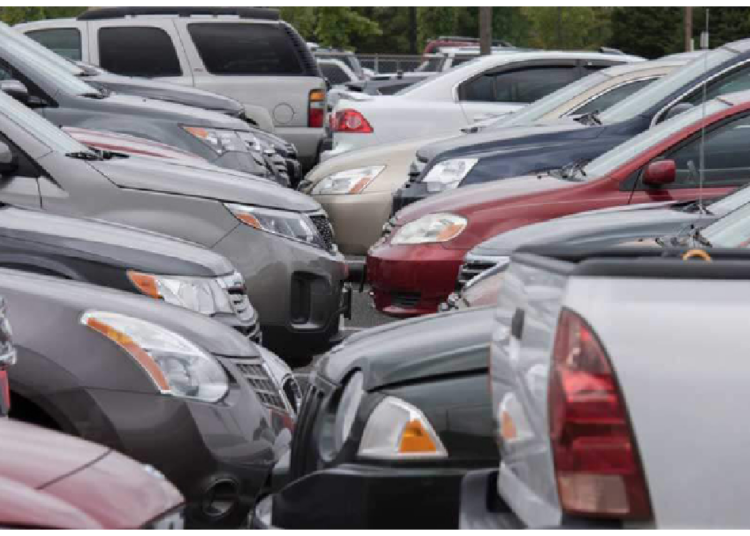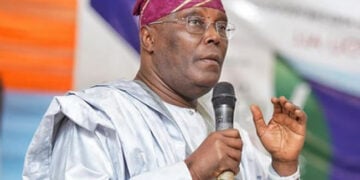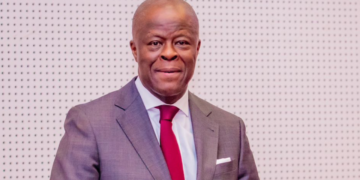Auto dealers in various parts of Nigeria are battling with sales glut as the economic landscape remains challenging.
Several automobile dealers in the Federal Capital Territory (FCT) and other state capitals, said the present harsh conditions have taken a serious toll on their businesses.
In separate interviews with LEADERSHIP Sunday, they pleaded with the federal government to adopt flexible policies to save the sector from collapse.
They said the poor patronage of the products had forced them to adopt innovative survival strategies and also diversify into other sectors to remain afloat.
The owners of Olaniyi Auto Gallery and Okudilli & Sons Motors in Abuja, said they recorded a sharp decline in sales last year and attributed it to the rising inflationary rate, fluctuating foreign exchange, and reduced consumer purchasing power.
The proprietor of Olaniyi Auto Gallery, John Adeyemi, said, “The demand for cars has plummeted significantly. Many customers who initially planned to buy cars have opted to delay their decisions or pursue used vehicles instead. This shift has taken a toll on our business.
“The harsh economic realities have made it increasingly difficult for families to make high-value purchases such as vehicles. We have seen a notable decline in foot traffic and inquiries.
“Many potential buyers are simply unable to secure financing or are prioritising necessities over luxury items,” he said.
In response to these economic adversities, both dealers have implemented a series of survival strategies to weather the storm, using diversification of service offerings as a key focus.
Adeyemi said he had expanded his company’s portfolio to include servicing and repairs, aiming to create a steady stream of revenue even when vehicle sales are low.
“We have shifted our focus to after-sales services. By providing high-quality maintenance and repair services, we can attract customers who may not be able to afford a new vehicle but still require reliable automobile services,” he said.
Also, the proprietor of Okudilli and Sons Motors, Chukwuemeka Okudilli, said he had taken a different approach, focusing on enhancing customer engagement through promotional events and flexible payment plans.
Okudilli said he had introduced trade-in offers that allow customers to exchange their older vehicles for newer models with manageable payment schemes.
“We have launched several promotional campaigns during the holiday season, including discounts and financing options that make it easier for customers to purchase vehicles without breaking their budgets.
“These efforts have helped us maintain some level of interest and boost sales.
“While sales were not what we hoped for, we did experience a noticeable increase in inquiries and purchases compared to the previous months. The holiday spirit encouraged some families to invest in new vehicles,” he said.
They urged the federal government to provide incentives for auto dealers to ease the financial strains on their operations.
The dealers asked for tax relief, subsidies for the importation of vehicles and parts, and measures to stabilise the naira to ensure better exchange rates.
In Ilorin, Kwara State, the dealers also lamented poor sales due to lack of patronage by both individuals and government.
One of the respondents, Alhaji Abdullahi Bashar of Hayjaykay Motors, Lagos Road, Ilorin, said a vehicle hitherto sold for N3 million now goes for N12 million.
Another respondent, Alhaji Usman Onikanhun of Trustkay Motors, Lagos Road, Ilorin, said the vehicles that the operators of rental services were using to park chairs and tables which used to cost N2 million each has gone up to N12 million.
Onikanhun said he had diversified into chair and table rental services to survive the harsh economy.
A renowned car dealer in Ilorin, Alhaji Adeniyi Jamagada, corroborated Bashar and Onikanhun, saying “there are no sales at all. The prices of the vehicles have gone up astronomically. The few customers we get prefer (Nigerian) “used cars” to “Tokunbo” (imported foreign used) vehicles because of the difference in their costs.
In Kano State, the zonal vice chairman of Vehicle Sellers’ Association and chairman of Adamawa Motors, Mallam Hassan Adamawa, said Nigerians with exotic cars are selling them to buy the more economical one.
He said the harsh economy had made people prefer cars already used in Nigeria with less maintenance whose price ranges from N3 million to N4 million, noting that, “what is important to many is how to feed their family.”
According to him, since the hike in fuel price, the business has not been thriving because of high import duties which make them more expensive.
Corroborating Alhaji Adamawa, the chairman of Zumunta Motors, Alhaji Inusa Oboy, said the hike in the price of petrol had made several Nigerians to drop their cars to focus on pressing family issues, which is affecting their business.
He explained that unlike before when in a day, they issued many receipts for purchase of cars, at present, they close without any sales, a situation that has made some of them to start losing their business capital to family provision amid a dwindling market.
Similarly, chairman of Badole and Sons Motors, Mustapha Wadole, and Kano State former chairman (Zone 1) of the Motor Dealers Association, Alhaji Gambo Ahmad, lamented how government officials also compounded business for them in the state.
They said most government officials prefer to give their friends the order to go abroad and import cars rather than dealing with them.
“During the administration of Kwankwaso, the government gave us an opportunity to supply 260 cars of which we benefited from. Since then, there is none from the government that has treated us in that manner,” he said.
Chairman of Wagini Motors, Alhaji Lawal Mohammed, said, in the past, a Hilux vehicle was sold for N2.5 million but now sells for between N50 and N60 million.
In Kaduna metropolis, some vehicle dealers identified brands of vehicles customers prioritise, saying many customers look for low fuel consumption vehicles to buy following the removal of fuel subsidy by the federal government.
A vehicle dealer, James Oche, who owns a motor stand at Command Junction, Television told our correspondent that many customers prefer vehicles that consume less fuel.
Another vehicle dealer opposite St. Gerald Catholic Hospital, Kakuri, Donald Israel, said, “Many customers ask for more Toyota vehicles to buy because of fuel economy.
I sell both imported fairly used vehicles and locally used cars that people resell to us when they are in need of money. I sell Peugeot vehicles, Toyota, Honda and Nissan,” he said.
A car dealer at Achara Layout, Enugu State, Mr Ibuchukwu Ekeh attributed the high cost of their vehicles to the high exchange rate.
In Ikeja, Lagos, a car dealer, Damilare Omiremi, said he recorded a significant drop in business due to the economic situation, which has resulted in a dramatic decline in customer patronage.
“When they say business declined, it is in the auto business they are referring to,” Omiremi remarked, highlighting the severity of the issue.
Omiremi explained that he used to sell an average of four vehicles per month but now struggles to sell one car in three months. “Imagine someone that sells an average of four vehicles in a month and now finds it difficult to sell even one in three months. You hardly see people coming to ask you about cars. So, the prices have gone up, making it difficult for customers to afford them,” he said.
To cope with the challenging times, Omiremi has diversified into logistics and offering driving services. However, he acknowledged that the survival strategies he had implemented had only partially alleviated his financial stress.
Another dealer, Jide Fatoki, expressed his frustration with the current government, sarcastically stating, “There is no hardship anywhere. It is the government; you asked for what you get.”





